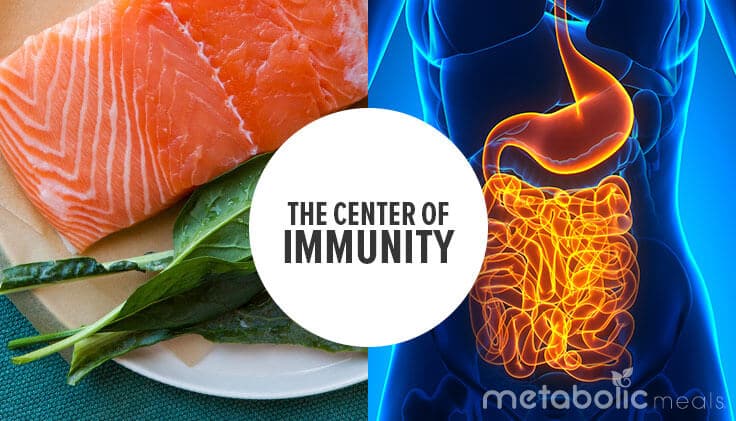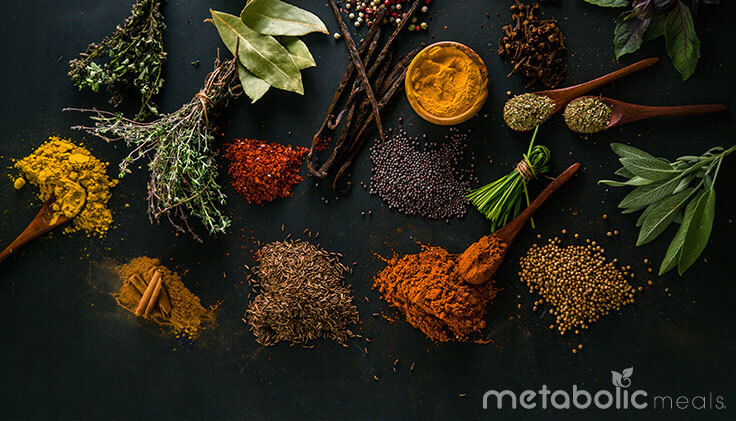ARTICLE AT A GLANCE
The food we consume is a critical factor in our immune health. In someone who suffers from an autoimmune disease, for instance, certain foods are guaranteed to trigger adverse symptoms. Fight autoimmune disease by focusing on three key aspects:
Our bodies are constantly on the lookout for potentially dangerous microorganisms, bacteria, and other bugs to kick to the curb. But if our bodies don’t have access to vital nutrients, our immune systems will suffer and won’t be able to do that job well. With more than 100 autoimmune diseases affecting more than 50 million Americans, the American Autoimmune Related Diseases Association warns that recognizing this balance is more essential than ever.
The food we consume is a critical factor in our immune health. In someone who suffers from an autoimmune disease, for instance, certain foods are guaranteed to trigger adverse symptoms. If the individual’s regular diet lacks proper nutrients, that will compound the effects of influences such as stress, medication, and environmental factors. It’s critical to ensure that all of us, especially those with autoimmune conditions, consume a nutrient-rich diet.
Nutrients and Your Gut: The Center of Immunity
Your gut is home to the highest concentration of immune-related functions, and these functions rely largely on healthy bacteria, protozoa, and other probiotics. Eating nutrient-rich whole foods helps promote healthier gut flora, but maintaining this balance can be more difficult when dealing with an autoimmune disease.

For example, nutrient deficiencies and food allergies make it easier for bad bacteria to change the environment within your gut. As they crowd out the beneficial bacteria that live there, they inhibit vitamin production, burrow into the gut’s mucous lining, and create holes in the lining that change the gut’s pH balance.
When this occurs, the epithelium — the outer layer of the gut’s barrier — begins to deteriorate. Junctions between its cells, which normally act as tightly controlled gates, became loose and unable to prevent unwanted molecules from seeping into the bloodstream. Microbes, toxins, and undigested food particles can travel throughout the body.
Poor digestive function, especially intestinal permeability, is just one of the many underlying factors of most autoimmune diseases. Others include hormone imbalance, food allergies, and lifestyle factors, many of which are exacerbated by different types of nutritional deficiencies.
How to Fight Back With Better Food

It isn’t entirely surprising to learn that experts have determined gut bacteria can drive the development and progression of autoimmune disease. Yale researchers found that intestinal permeability in mice allowed bad gut bacteria into the bloodstream, triggering autoimmune responses in other areas.
In my experience, limiting certain foods lowers the ability of bad gut bacteria to compromise the intestinal lining, which helps lower the effects of autoimmune systems. Flare-ups are often triggered by vegetable oils (which are high in omega-6 fatty acids), refined sugars, refined wheat flour, and fried foods — all of which cause inflammation, pain, and swelling.
By identifying the underlying sources of inflammation and eliminating them from our diets, we can restore balance within ourselves. Avoiding trigger foods helps lower overall inflammation, improve hormone balance, reduce or eliminate food allergies, and increase motivation to make healthier lifestyle choices.
Personally, I focused on anti-inflammatory foods such as wild fish, berries, dark leafy greens, nuts, and sweet potatoes. The change improved my blood sugar and cholesterol regulation (which helped further control inflammation), the concentration of healthy flora in my gut, and my immune system response.
Tackling Specific Ailments

While everyone’s condition is different, some nutritional standards apply generally to certain types of disease. For example, people with rheumatoid arthritis often ingest too much acid, which causes inflammation and pain flare-ups. Avoiding foods such as red meat, eggs, vegetable oils fried foods, sugar, dairy products, refined carbs, gluten, alcohol, and caffeine might be necessary to limit such flare-ups.
Nightshade vegetables, such as tomatoes, potatoes, eggplant, and peppers, can also be problematic. They contain solanine, which can trigger allergic responses and pain in some arthritis sufferers. This might seem like a big list, but those with arthritis who eliminate these foods often report significant relief from their symptoms.
For people suffering from lupus, foods such as vegetable oils, hydrogenated fats, and partially hydrogenated fats can have a particularly strong influence on inflammation. Some even report that their pain goes away completely after eliminating animal meats and fried or greasy foods from their diets.
Avoiding sugars and refined carbs is also a good idea. They can damage the immune system further and make those with lupus more susceptible to infection and illness. As with arthritis, limiting or eliminating gluten products including bread, pasta, and pastries is also a great recommendation when dealing with lupus.
The truth is that anyone with an autoimmune disorder should focus on improving the quality of their diets with healthier and more natural foods. For example, regular fasting, such as three days every month, will help keep the body functioning at its peak. Include plenty of green drinks and cleansing herbal teas for optimal results. In addition, stay away from high sugar foods, gluten, and processed oils. It’s a good rule of thumb to stick by, even if you aren’t fighting an autoimmune disease.
If you want to increase the nutrients in your diet but aren’t sure if you can do so on your own, consider a pre-made meal delivery service. That way, you’ll have easy, pre-planned meals to fall back on if you’re too busy to cook or aren’t sure which foods offer the best nutrients.
Kelley Baker is a Nutrition Health Coach with 15 years of experience of personal training and holistic lifestyle coaching. Her certifications include NASM, C.H.E.K, ICANS, and Poliquin.






